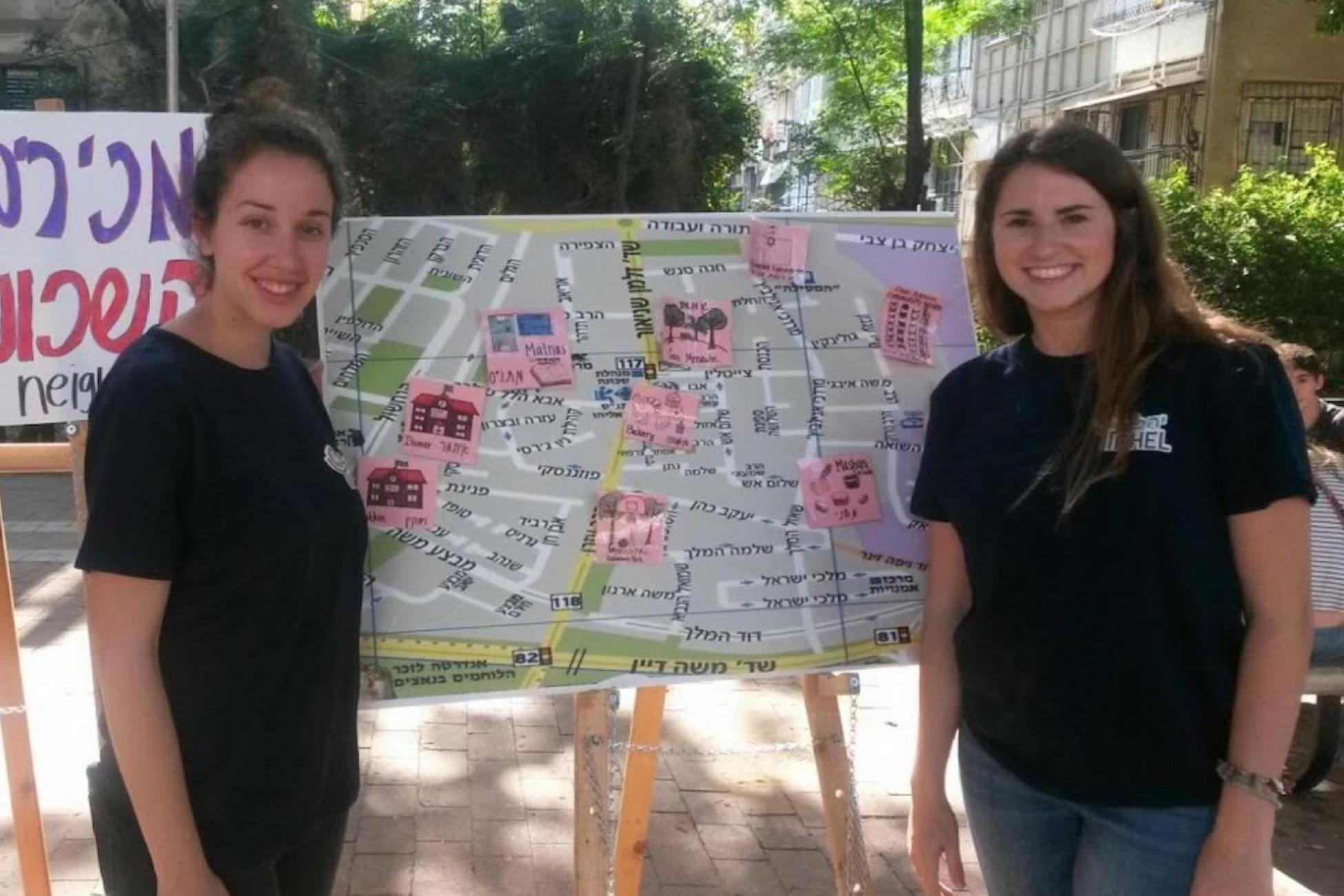When I decided I wanted to visit Israel, I knew I wanted to have an immersive cultural experience and gain new perspectives; the kind you can only get by living in a new country. But I was intimidated by the prospect of dealing with the logistics of starting a life in a place where I didn't speak the language and was unfamiliar with the culture.
That's why I chose to sign-up for a nine-month-long volunteer program. My volunteer program provided housing and a coordinator who helped the volunteers with navigating the Israeli workplace culture, health insurance and landlord relationships. This assistance gave me the chance to get to know Israel, its people and its culture, free of the anxiety that comes with dealing with these issues in a foreign language and culture.
When I decided to extend my stay in Israel past the end of my volunteer program, several questions came to mind: How would I find a job? Would my lack of fluency in Hebrew pose a problem? Where would I live? What would I do in the event of a medical emergency? For nine months, I had had someone to turn to with issues like these, but now I was on my own and forced to rely my own resources.
Finding a job in Israel
In Israel, like many countries, finding a job is all about the networking. Because I had already spent the better part of a year volunteering and working in different capacities for local non-profits, I ended up finding a job in the non-profit sector, a space that has an almost constant demand for English speakers that can work with international partners.
I was raised to be modest. But to find a job in Israel, I needed to truly understand my strengths, be proud of them, and communicate them to potential employers.However, the most important factor in finding a job in Israel is your attitude. While Americans and Canadians tend to disguise their true feelings with politeness, Israelis are straightforward, honest, and often pushy. In the U.S. or Canada, it’s necessary to walk a fine line between talking about your strengths and bragging, but in Israel, it’s expected to really push for yourself in the job market. This was one of the biggest challenges for me: I was raised to be modest and let your work speak for you, but to find a job in Israel, I needed to truly understand my strengths, be proud of them, and communicate them to potential employers.
Learning how to advocate for myself
To succeed in Israel, from finding a job and an apartment to making friends and dealing with health insurance, I had to learn be straightforward and aggressive. In Israel, you won’t get anywhere if you wait patiently for a response or for your turn in line. From doctors’ offices to bus stops, people are always pushing to be first, and this attitude is required also in finding an apartment amid a sea of competition and resolving issues at work.
During one of my volunteer placements at an after-school program, I struggled for a month with behavioural issues from the kids I was working with. When the issue finally came up with my supervisor, she asked in a typical Israeli fashion, “why didn’t you say so?”
rowing up, I was taught that problems at work were growing opportunities, or chances to build character and patience. It never occurred to me to be upfront with my boss about my problems.
After this experience, it seems so obvious that a problem won’t be solved until you bring it up, but still today I find myself questioning if my issues are “legitimate” enough to address or if I should just suffer in silence. But the more I live in this culture, the more I realize that only you will advocate for yourself, whether its at work, at the doctor’s office, or with you landlord. Even though it can be awkward and uncomfortable to raise issues, what do you have to lose?
Defining success on my own terms
Since completing my volunteer placement, I've learned that finding a job (which includes navigating confusing government systems) is an essential part of the living and working abroad experience. Missing out on this means seeing only the easy, polished side of a place. It wasn’t until I confronted the hard, challenging parts—some which made me cry with frustration—and came out on top l that I truly felt like I belonged here and that I could survive on my own.
In the end, forcing myself to face these challenges head on and learning how to advocate for myself taught me what it means to be Israeli and what it takes to survive in this country.

